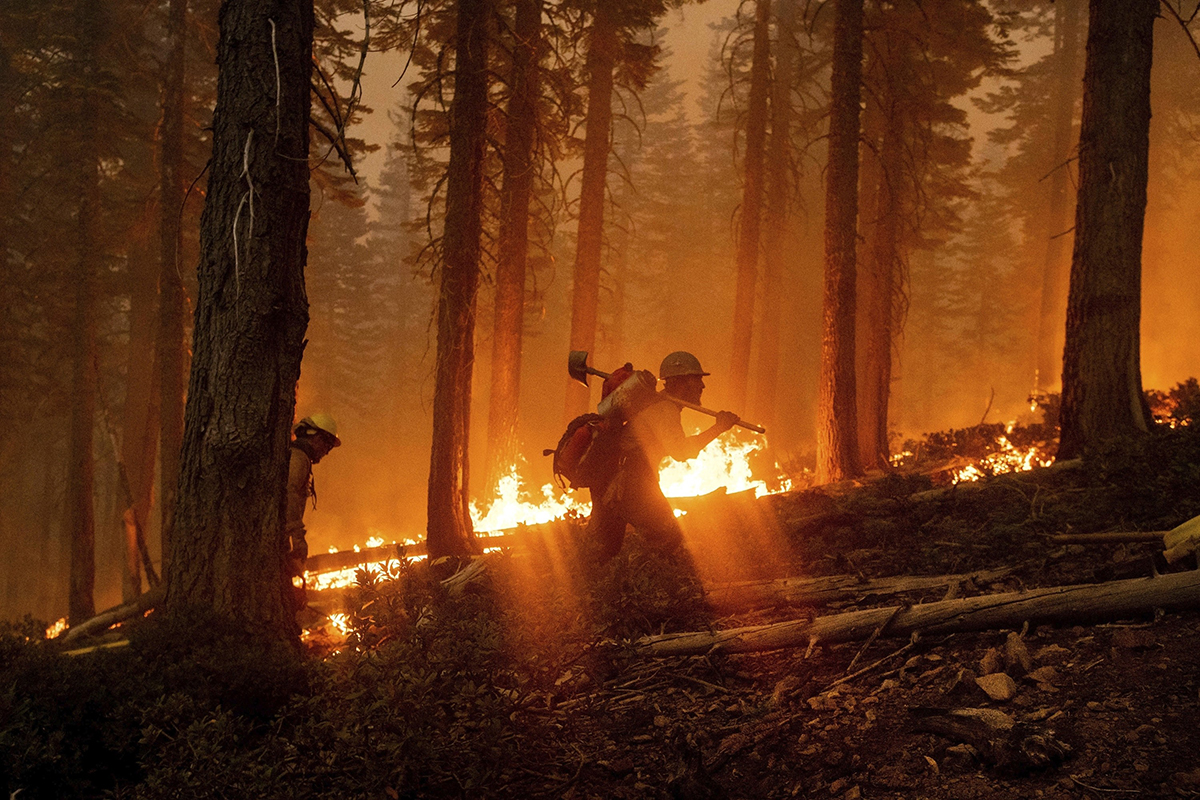Wildfire season may be winding down in B.C., but more than 300 firefighters are still busy helping battle fires in the United States.

Last month, the BC Wildfire Service sent 207 firefighters to Oregon on Sept. 17 to help battle extreme wildfires there.
One week later, on Sept. 25, another 143 were sent across the border, this time to Quincy, Calif., to help fight fires in the Golden State.
A small town with a population of just under 2,000 nestled along the Sierra Nevada mountains, Quincy is located in northern California, about three hours north of Sacramento and a 90-minute drive northwest of Reno.
It’s also near the North Complex fire, a massive blaze that’s around 315,000 acres (127,475 hectares), but was 79 per cent contained as of Wednesday.
Still, the North Complex fire has been called the fifth largest fire in the state’s modern history.
For comparison, some of the largest fires in B.C. this year were the Christie Mountain wildfire in the South Okanagan at 2,122.50 hectares (5,244 acres) and the Doctor Creek wildfire (7,645 hectares / 18,891 acres) in the Kootenays.

A BC Wildfire spokesperson, Forrest Tower, said updates are being sent daily as to how the B.C. crews are doing.

Get daily National news
“They are working in isolation, not alongside American crews,” Tower told Global News on Thursday. “But they do get their directives from American supervisors, then carry out their work.”
Tower said the work they’re doing is similar to what they’d be doing in B.C. — handguards, working perimeters and dousing hot spots — but on larger scales.
He also said it appears the fires in central Oregon are becoming more contained, but that the North Complex fire is still active.

How long the firefighters will stay stateside isn’t yet known. Forrest says crews work up to 19 days, then must take time off. He said crews could take their days off in the U.S., then return to work, or they could return home.
As of Thursday in B.C., there were no wildfires of note, and there were just 16 active fires throughout the province.
The extra work they’re receiving south of the border will, certainly, come in handy for B.C.’s next wildfire season.

“Even going into Oregon, where there are some similar (fire) fuel types, it’s still a different situation,” said Tower. “And then California, it’s a whole new world, with completely different fuel types in some areas, depending on where you’re working.
“So it is good exposure and good practice for our crews to have exposure to how Americans handle things. It’s always good for that cross-training variance, so there’s a lot of benefits other than purely assisting our neighbours in times of need.”










Comments
Want to discuss? Please read our Commenting Policy first.